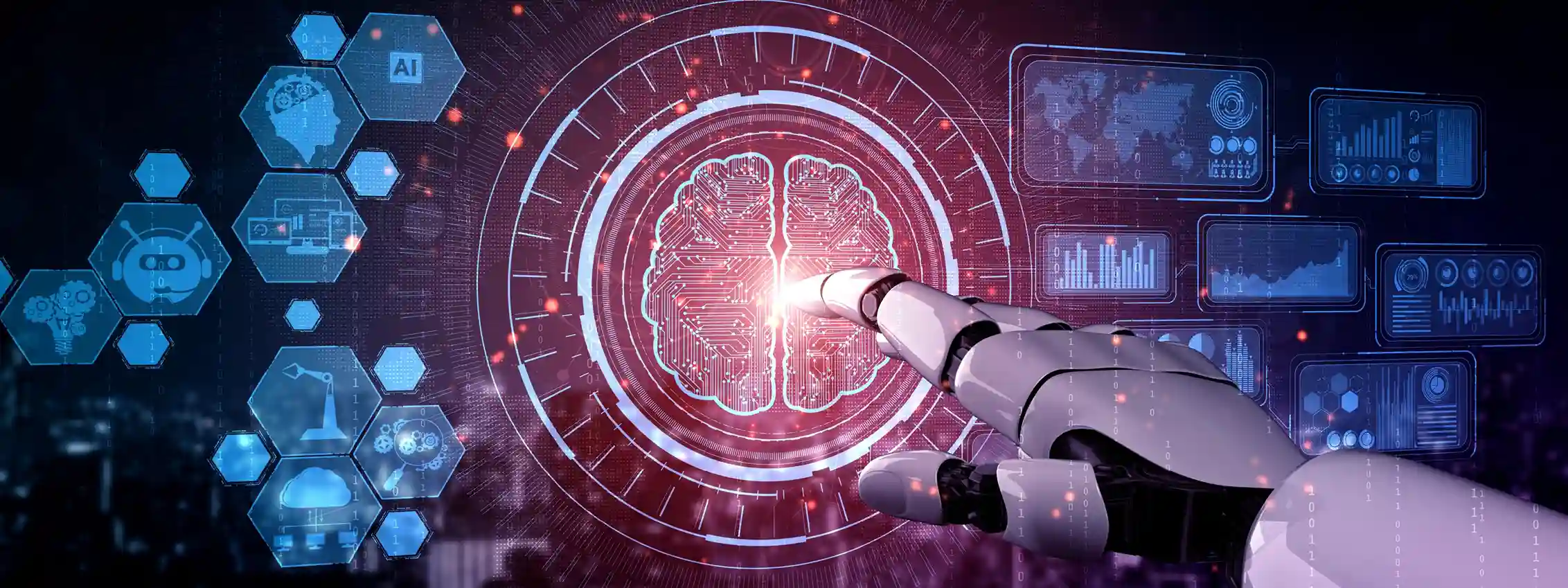LLM and ChatGPT: Empowering Healthcare and Impact on Patient Services
Author: Inza Khan
At the forefront of technological advancement in healthcare, the integration of Large Language Models (LLMs) like ChatGPT is poised to revolutionize patient services on a global scale. The transformative potential of these models, capable of comprehending, adapting, and automating complex processes, paints a future where healthcare becomes not just efficient but also deeply personalized and impactful. With tech giants seamlessly incorporating LLMs into their products, the synergy between advanced AI and healthcare is positioned to redefine the patient experience, turning each interaction into a catalyst for improved outcomes and, potentially, lives saved.
Rationale Behind Implementing Large Language Models in Healthcare
The healthcare industry, rich in textual data from patient records to claims documents, clinical notes, and more, faces challenges in effectively leveraging this vast amount of information. LLMs, with their rapid reading, interpretation, and action capabilities, offer a compelling solution.
Despite the abundance of data, personalizing the patient’s experience and improving care has been a persistent challenge. Labor-intensive processes, coupled with staffing shortages, hinder large-scale personalized care. LLMs emerge as game-changers, offering solutions to challenges such as data mining, drawing conclusions, and opening new possibilities for healthcare providers.
LLMs at the Forefront of Healthcare Transformation
The remarkable capabilities of Large Language Models, epitomized by ChatGPT, have come to the forefront in healthcare applications. In medical transcription, LLMs, leveraging machine learning and natural language processing, streamline the conversion of spoken observations into accurate health records, significantly reducing operational hazards. Furthermore, these models play a pivotal role in clinical decision support by swiftly analyzing textual patient records and medical literature. This LLM analysis saves time providing healthcare professionals with valuable insights to enhance overall patient outcomes. The transformative impact of LLMs unfolds across medical documentation and decision-making, showcasing their potential to revolutionize key facets of healthcare delivery.
The Rise of Transformers
Language models such as ChatGPT, GPT4, BERT, Chinchilla, Gopher, Bloom, MT-NLG, PaLM, and LaMDA are built on a cutting-edge architecture called ‘transformers.’ First introduced by Vaswani et al. in 2017, transformers serve as the core intelligence of these models, equipping them with the capability to interpret and utilize language in a manner strikingly similar to human understanding. They work by analyzing the context and relationships of words in extensive texts. This groundbreaking technique has transformed the creation and application of Large Language Models (LLMs), establishing their critical role not only in healthcare but also as key players in diverse fields such as insurance and manufacturing.
Bridging the Healthcare Last Mile with Large Language Models
Large Language Models (LLMs) serve as transformative bridges, particularly in addressing the crucial “last mile” challenges in healthcare. These challenges encompass barriers like:
- Patient engagement
- Remote access
- Health literacy
- Technology gaps
- Care coordination
- Cultural diversity
- Behavioral factors
- Resource limitations
- Data security
These models, exemplified by advancements like ChatGPT, offer innovative solutions to streamline and enhance the final leg of healthcare delivery. By leveraging advanced natural language processing and machine learning, LLMs in healthcare facilitate improved communication, personalized patient engagement, and efficient information dissemination. The application of LLMs in this context signifies a significant stride toward overcoming barriers, ensuring that healthcare services reach their intended destination—comprehensive, personalized, and impactful patient care.
Automating Every Aspect of Customer Support
Large Language Models (LLMs), having gained prominence since the mid-2010s, are reshaping customer support dynamics, with pioneers like ultimate.ai leading the charge. Illustrating their broad applicability in healthcare, these models automate every facet of customer support, streamlining interactions and setting a precedent for widespread integration across various industries. Early adopters, exemplified by companies like ultimate.ai, serve as trailblazers, showcasing how LLMs in healthcare can efficiently handle queries, disseminate information, and redefine the customer support landscape, promising enhanced experiences and operational efficiency in the digital era.
A Closer Look at ChatGPT in Medicine
Real-Time Clinical Support by ChatGPT in Healthcare
ChatGPT, a versatile player in the healthcare landscape, goes beyond mere integration—it crafts personalized treatment plans and redefines remote patient monitoring. Patients can seamlessly engage with virtual assistants powered by ChatGPT, facilitating appointment scheduling, treatment guidance, and efficient management of health information from the comfort of their homes. In real-time clinical support, ChatGPT aids healthcare providers with timely, evidence-based recommendations, streamlining recordkeeping, overcoming language barriers, and providing real-time drug information.
ChatGPT’s Role in Patient-Focused Care
ChatGPT stands at the forefront of healthcare innovation revolutionizing patient-centric care. It is streamlining clinical trial recruitment, monitoring global health for disease surveillance, providing personalized assistance, and offering mental health support. It is also contributing to efficient remote patient monitoring with early intervention strategies. Through its multifaceted impact, ChatGPT enhances patient experiences, accelerates medical research, detects global health patterns, delivers personalized assistance, supports mental well-being, and proactively addresses health risks, leading to a more responsive, patient-focused, and cost-effective healthcare landscape.
Challenges and Considerations
Embarking on integrating Large Language Models (LLMs) like ChatGPT in healthcare, we acknowledge the dual nature of this technological leap—bringing immense benefits while necessitating careful consideration of ethical challenges. We focus on addressing issues related to ongoing content monitoring for accuracy. Our emphasis is on implementing strategies that guarantee the reliability of medical information. These approaches include real-time fact-checking, expert reviews, feedback from machine learning, periodic audits, transparent sourcing, continuous AI training, and regular updates.
On the ethical front, our commitment is unwavering, safeguarding patient privacy and data security, enhancing informed consent through transparent communication, establishing accountability for AI responses, mitigating biases, and prioritizing continuous training and updates. At Xorbix, we envision a future where technology and ethics harmonize seamlessly, ensuring responsible AI deployment for the betterment of healthcare.
Conclusion
Integrating Large Language Models in healthcare marks a transformative era, promising efficiency, personalization, and ethical care. From automating patient communication to redefining medical documentation, LLMs reshape healthcare, addressing data abundance and personalization challenges. ChatGPT’s versatility stands out, crafting personalized treatment plans and offering real-time clinical support. Challenges like content monitoring and ethical considerations underline the need for responsible AI deployment.




